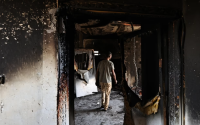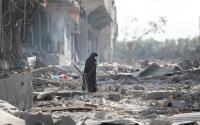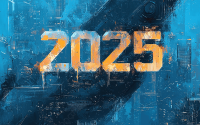25 March 2006Nick Miroff
Not quite a year ago, I wrote a piece called Moving Out of the Superpower Orbit. While the Bush administration, I suggested, was putting much effort into stripping the former Soviet Union, now Russia, of its Central Asian imperial "near abroad" -- that was the Russian term for it -- the U.S. "near abroad" in Latin American, our imperial "backyard," was quietly peeling away under the pressure of democratic "people power" movements. Both of these developments, I argued, revealed the essential weakening of the two superpowers that, for half a century, had held the world in a Cold-War grip.
Recently, a variety of writers have been exploring the stunning transformation of Latin America as it continues to be seismically shaken out of the U.S. orbit. To mention just a few examples: In Out of Fear, Ariel Dorfman considers whether the new, democratic Latin America can confront its most "endemic problems"; in Breaking Free of Washington's Grip, Noam Chomsky analyzes Latin America's emerging place in the regional blocs that seem to be coalescing in a post-Cold War world; while in Latin America Unchained, Mark Engler wonders whether there will be an independent economic (as well as political) path for Latin American debtor-nations trying to cut their ties with the International Monetary Fund and, implicitly, with Washington-oriented solutions to their desperate economic problems.
In the second piece posted here from the class I teach at the Graduate School of Journalism at the University of California, Berkeley (all of which will appear in Sunday's San Francisco Chronicle Insight section), Nick Miroff offers the story of Latin America's transformation with a particularly striking twist. Tom
Che Rides Again (On a Mountain Bike)
By Nick MiroffHas Latin America ever had such a unifying figure?
At political rallies, his visage is held aloft as a beacon to regional independence and self-determination. He's helped forge new trade partnerships to spur economic growth and alleviate poverty. And his leadership has fanned a gale-force electoral trend that's sweeping the hemisphere to topple one pro-Washington government after the next.
Who is this grand inductor of Latin American leftism? Venezuelan fireball Hugo Chavez? Blue-collar Brazilian Lula Ignacio da Silva? Bolivia's coca-farmer-cum-president, Evo Morales?
¡Epa! It's George W. Bush, the accidental revolutionary.
In the past five years, the swaggering Texan has inspired a leftward surge that is uniting Latin America and threatening to knock Che Guevara right off all those natty t-shirts.
When Che's ill-fated insurgency ended in the jungles of Bolivia with his death in 1967, his vision of a single, unified, socialist continent remained utterly unfulfilled. U.S.-backed right-wing military dictators would rule much of Latin America over the ensuing two decades, and many of Che's followers would be tortured and killed in efforts to overthrow them.
As democracy returned to the region at the end of the Cold War, most Latin American governments rushed to embrace the "Washington consensus" -- market-oriented liberalization policies that cut social spending and privatized national industries in order to pay down national debts. But the formula, pushed on the region by successive American presidents, largely failed to deliver the goods and left entire governments bankrupt and beholden to foreign lenders. For Latin America's angry, marginalized, impoverished masses, already-threadbare social safety nets only unraveled further.
"The macroeconomic proposals of the Washington consensus have not been working," says Guillermo Delgado, professor of Latin American Studies at UC Santa Cruz. "That model was supposed to create prosperity and, after so many years, such prosperity has not been seen and class polarization has grown deeper."
Sensing an opportunity, new social and political movements in the region began marshalling their forces. Then George W. Bush came along, combining Yankee hubris with a Che-worthy radicalizing touch.
Bush has since presided over one of the most significant political re-alignments in the history of the Western Hemisphere. By this summer, every major Latin American nation but Colombia is likely to be run by elected leaders with stronger backgrounds in Marx than free markets. If Cold War-era "domino theory" has been a bust in the Middle East, it's working with textbook precision in Latin America.
Late last year, voters overwhelmingly elected former coca-grower Evo Morales, the founder of Bolivia's "Movement Toward Socialism" party, who fancies himself a "nightmare" for the Bush administration. Then, in January, Chilean voters chose socialist candidate Michele Bachelet, a torture victim of the Pinochet regime, as the nation's first woman president. Leftists now rule as well in Venezuela, Uruguay, Brazil, and Argentina, and are leading in upcoming elections in both Peru and Mexico, the region's electoral grand prize. Even recycled Sandinista leader Daniel Ortega -- "a hoodlum," according to Roger Noriega, formerly the U.S.'s top Latin America official -- appears poised for a comeback when Nicaraguan voters go to the polls in November.
Though Latin America's national borders won't melt away anytime soon, Che's vision of pan-Latin cooperation has already begun to materialize. Venezuela, Brazil, and Argentina recently announced a $20 billion plan to build a trans-national gas pipeline through the Amazon. Chile has opened dialogue with landlocked Bolivia, easing a long-simmering feud over seaport access that stretches back more than a century. Cuba, that tropical bête noire of the White House, still uses doctor diplomacy and sends physicians all over the region -- only now, it receives billions of dollars worth of Venezuelan oil in return. And Mercosur, a South American common market dominated by Brazil, has emerged as a rival to the faltering U.S.-sponsored Free Trade Area of the Americas (FTAA).
Mercosur member states blocked ratification of the FTAA at the 2005 Summit of the Americas in Argentina. When Bush arrived to deliver a speech at the conference, he was greeted by mobs of angry street protestors who burned American flags, a Burger King, and unflattering effigies in his likeness.
"Fascist Bush!" they chanted, "you are the terrorist!"
Fencing Off the "Backyard"?
Bush's overwhelming unpopularity in Latin America is especially disappointing given that he put Latin American relations at the top of his foreign-policy agenda after taking office. No other U.S. president had gone to Latin America for his first visit abroad, and even after 9/11, Bush maintained that the United States "has no more important relationship in the world than the one we have with Mexico." At every turn, he'd trot out his twangy Spanish in order to burnish his Latin cred.
Since then, Latin America has only drifted further south. Support for the U.S. war in Iraq is notably abysmal. Only a handful of countries in the region backed the invasion to oust Saddam Hussein and all were minor players with the exception of Colombia, the fifth-largest recipient of U.S. foreign aid. That Washington is willing to spend lavishly on drug eradication in the Andean region but little on development or public health has not been lost on the new ascendant left, either.
In a recent Zogby poll, fewer than 20% of Latin American elites (typically the most politically conservative voters in the region) gave Bush a favorable approval rating. Only 6% said Bush's policies were better than those of his predecessors.
Some analysts have attributed Latin America's political shift to U.S. foreign policy negligence, arguing that, because the Bush administration is so consumed with Iraq, American officials are now incapable of wielding effective diplomatic influence in the region.
"After 9/11, Washington effectively lost interest in Latin America," writes Peter Hakim, President of Inter-American Dialogue, in the January/February issue of Foreign Affairs. "Since then, the attention the United States has paid to the region has been sporadic and narrowly targeted at particularly troubling or urgent situations."
This interpretation suggests Bush has been a kind of inattentive steward, too busy riding that mountain bike to notice the mutiny going on beneath his nose. Worse yet, Hakim believes the United States has neither the resources nor the will to alter the course.
But Latin America's leftward shift stems from more than White House distraction. It's not that the United States is acting aloof with its neighbors; rather, we're the worst-behaved homeowner on the block. We fly the biggest flag, make the loudest demands, and on top of it all, we don't even like having guests over. Sure, the United States has treated Latin America as its "backyard" for two hundred years -- but now, Bush's own party wants to fence it off.
House Republicans recently approved a plan to erect a 2,000-mile, Israeli-style barrier that would wall off Mexico and the rest of Latin America. The plan isn't expected to survive a Senate vote, but it sums up the current state of north-south relations quite well. And it's been a godsend for the presidential campaign of left-wing Mexico City Mayor Manuel Lopez Obrador, the leading candidate in the July 2nd elections and a frequent Bush critic.
For Lopez Obrador, the border fence proposal is proof that NAFTA is faltering and that outgoing President Vicente Fox was on the wrong end of the rope in his faux-ranchero friendship with Bush. Fox had staked his presidential reputation on securing an immigration accord with the Bush administration, and his failure has made excellent fodder for Lopez Obrador's campaign. His election victory in July would leave the last domino leaning right on Washington's doorstep.
Helping Hugo
The Bush administration has been most frazzled by the growing regional influence of Venezuelan President Hugo Chavez, whom Donald Rumsfeld recently likened to Hitler. Chavez has his own nickname for Bush -- "Mr. Danger" -- and he's effectively shaped the American president into his political foil.
As Bush pushes the region away, Chavez pulls. The Venezuelan leader has fashioned himself into a kind of Latin American Robin Hood, raking in tanker-loads of petrodollars in order to bankroll massive social programs and regional integration schemes. He's provided oil at subsidized rates to poor countries throughout the Caribbean, even sending discounted winter heating oil to low-income residents in Boston and the Bronx -- an act of mockery as much as aid. The Bush administration's tacit endorsement of a 2002 coup that briefly ousted Chavez has left the U.S.'s rhetoric about respect for democracy ringing hypocritical.
At the World Social Forum in Caracas in January, Chavez t-shirts were reportedly de rigueur, along with all the other standard-fare knickknacks of rebellion: Castro-hats, Zapatista stickers, and anything red with Che on it. By comparison, Bush apparel was in short supply.
Granted, he did show up on a few banners and posters that weren't slated for immolation, like one that read "Chavez yes, Bush no!" But twenty years from now, who knows? Latin America may be much better off then. And perhaps he'll finally get the "Gracias Bush" he deserves -- with his own face on a silkscreen.
Nick Miroff is a student at the UC Berkeley Graduate School of Journalism. He has reported from Latin America for National Public Radio, Mother Jones, and the Oakland Tribune.






